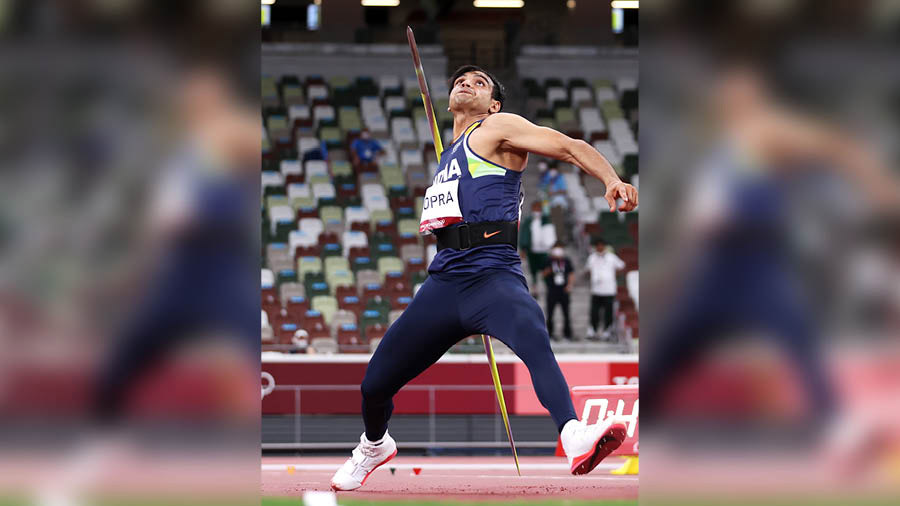Performance seems to be on everyone’s mind. Be it why a decent cricketer is not scoring or how Durex’s marketing team wants everyone to score. Like it or not, performance has always been an innately human thing. From the ancient cave paintings in Sulawesi to the painstakingly carved Kailasanatha temple that took three generations performing their roles. From the first notes of Beethoven’s Fifth to the daring act of setting sail across a dark ocean hoping to find the edge of the world. From the first Olympic games in ancient Greece to Sachin Tendulkar carrying the hopes of a nation with that flourishing straight drive.
Performance is the act of executing an action or the process of doing a task (doing it poorly or doing it well). Performance is hardwired into our brains with the same surety as the crease when you fold a paper. The human brain, through evolution, allows sophisticated thinking — a competitive advantage against other animals. It helped us cooperate, colonise and create beyond the basic impulse to survive for another sunrise. Today, performance is multifaceted even though AI-powered chatbots write essays and emails. Yet, the human element remains integral in performance. Why?
Because performance is aspirational. Yes, read that again. Performance is aspirational. We all want it. Some achieve it at times. Few attain it consistently. No one gets it for free. Sport is such a great laboratory. It’s why when Neeraj Chopra lined up at Tokyo 2020, a few hundred million screens suddenly switched on the Olympics and traffic slowed in the always busy country. Dreams of a nation on the tip of a javelin that flew through the air to land at 87.58m. Suddenly, a lot of people wanted to throw spears. A lot of them wistfully wondered what might have been if they had not given up their dreams of being an athlete when Class 12 board exams came calling. It explains why every cricket fan has randomly broken into a bowling action while walking through a corridor (Zaheer Khan’s for me) or why someone invariably clicks their tongue to comment, “Should have hit it to square?” (as if the professional cricketer needed private coaching from an ex-gully cricketer).

Neeraj Chopra's Olympic gold winning throw Getty Images
Singing in the shower vs headlining a concert
What is performance? Is it how much you lift at the gym or how peacefully you sleep? Is it how fast you sprint or how many zeros you add in the bank account? Is it how much you smile or how quickly you learn? As a sport and performance psychologist and a scientist, let me answer from a mental perspective and leave the body to the ones who know it.
Performance is efficiency. It usually starts with repetition. The most obvious example is the 10,000-hour rule (introduced by Malcolm Gladwell in his book Outliers: The Story of Success). Simply put, the key to achieving expertise is merely a matter of practising it, in the right way, for a minimum of 10,000 hours. But, that’s not performance. Expertise is knowing how to do something. Performance is an elevation of that. Performance is executing that under pressure when there is a consequence to failing. It’s the difference between singing perfectly in the shower vs headlining a concert at a sold-out stadium.
Performance is creativity — our brains mould the basics of a-t-c of a task, before creatively executing them to spell out c-a-t. Performance is pain — a guitarist has bleeding fingers, a fast bowler a sore back, a footballer sore shins, and the coder a headache. Performance is also evaluation. In that context, our brain and our concept of ‘I’ need to accept the fact that we will be judged — both for our successes and failures. As the saying goes in sport, “the scoreboard and stopwatch never lie”.
So, performance or the pursuit of high performance needs efficiency (E), creativity (C), pain (P), and evaluation (E). The matter of high performance is also boring (B). An athlete spends less than six per cent of their time in competitive situations (approximately). A corporate leader spends a similar amount of time in making bank-breaking business deals. Yet, both contexts of performance require E-C-P-E to be consistently maintained for any hope of high performance and success (I’m aware you were hoping for a snazzy acronym, unfortunately, I did warn you, high performance is boring).
But don’t expect high performance every time. Remember that performance is also a package. That’s, in fact, the other P in performance: Package.
(Dr Sahen Gupta is a Kolkata-born, India- and UK-based psychologist who divides his time between mental health support and high-performance coaching. As the founder of Discovery Sport & Performance Lab, he works not only with Olympians and other top-level sportspersons, but also with CEOs and other professionals striving for excellence. Dr Gupta’s mission is to simplify complexities of the mind into actionable and simple ‘doables’ that allow individuals to be mentally fit.)
